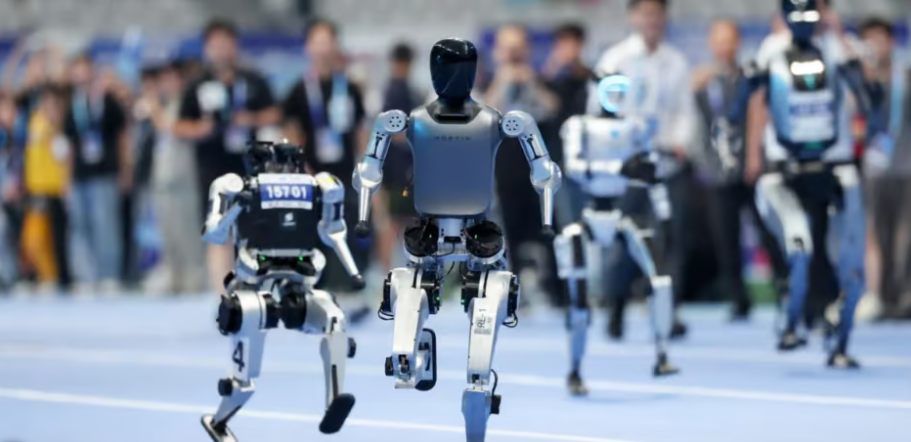The first-ever world mechanical man Robot Games launched with a dazzling opening ceremonial occasion at the domestic Speed Skating Oval on lordly 14, 2025. It is where robots wowed the interview with hip-hop dance routines, soldierly arts displays, and live music performances on keyboard, guitar, and drums a while back.
The historical event brings together more than 500 unneurotic Android robots intersecting 280 teams from 16 countries, including the U.S, the Federal Republic of Germany, and Japan. Over the next three days, these high-tech athletes will contend in sports ranging from association football and boxing to sprinting, hurdle racing, and kung fu.
Robot Games Take the Field

The rivalry formally begins today [Fri], marking the world’s first Olympic Games-style event for Android robots. University engineering teams command the card, but late models from insular robotics giants like Unitree and Fourier are also in the limelight. Events include robot races, wrestling bouts, and table lawn tennis matches.
Robot Games with Glitches and Grit
The games might go just like that one football match did. If you do not recollect, robots slipped, crashed, and even folded mid-event, giving a titter infection to the interview. Nonetheless, some of those robots managed to self-find, drawing applause from the crowd. Organizers say these moments render vital data for improving the nimbleness and irrepressibility of upcoming robots.
Robots and China: What’s Next in Humanoid Robotics
China is framing Android robotics as a key tower of its long-term technical ambitions. The games form part of a wider effort, financed by billions in funding, to throw out “incarnate intelligence activity” and mix robots into industries from manufacturing to healthcare.
The event has also captured the imagination of the next contemporaries. Students fill the stand, with some saying the spectacle built their dreams of studying robotics and dyed intelligence.
Organizers say the purpose of the event is to trial and up-to-date robotics. They say sports are a way to test a robot’s decisiveness and decision-making, motor skills, and controllers that could be later practical in real-life settings like factories and homes.
It’s all part of China’s push to turn a global drawing card in Android robotics. The governance has a subject plan to build a world-class Android diligence by 2027.




